Publications
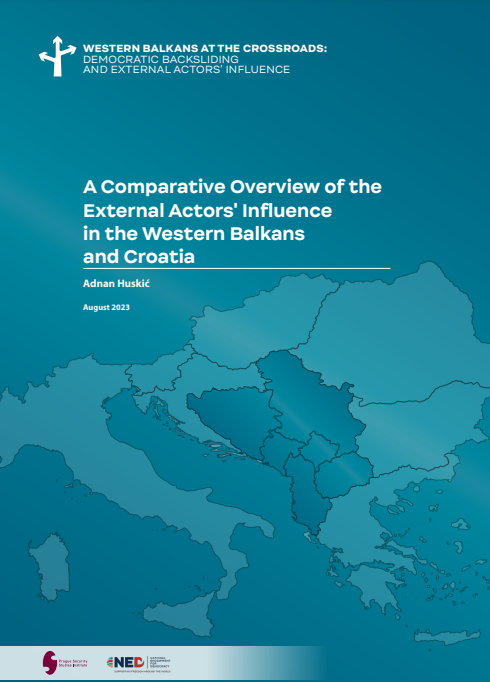
Information Resilience Program // Adnan Huskić / 29 Aug 2023
A Comparative Overview of the External Actors' Influence in the Western Balkans and Croatia
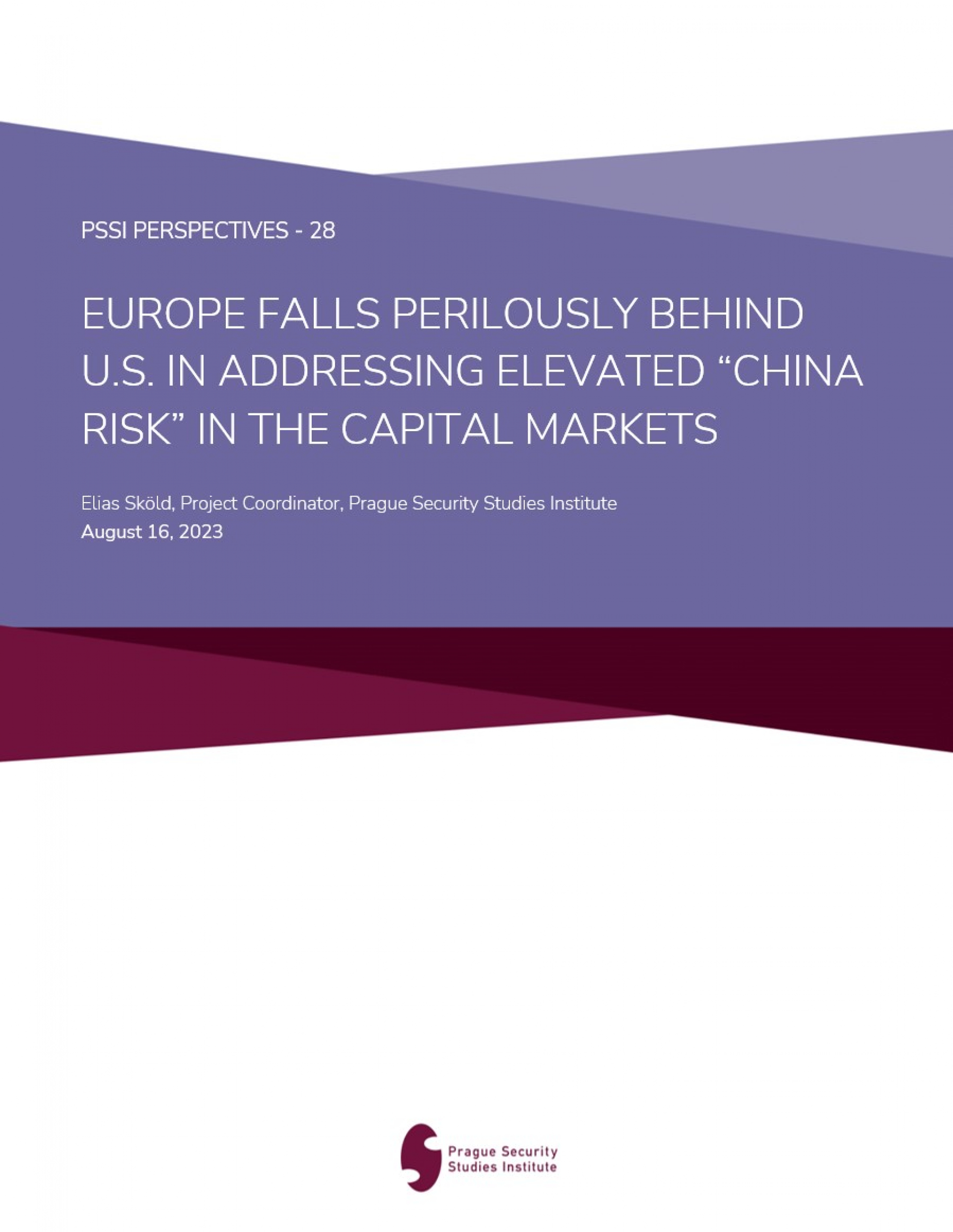
Economic & Financial Statecraft Program // Elias Sköld / 16 Aug 2023
PSSI Perspective #28: Europe Falls Perilously Behind U.S. in Addressing Elevated “China Risk” in the Capital Markets
There is a growing momentum within the U.S. legislative landscape to counter the risks associated with investments in Chinese companies - and Europe would be wise to pay attention to this. PSSI’s Elias Sköld highlights the growing concerns about U.S. investors funding Chinese state-controlled companies, including those supplying the Chinese military and committing egregious human rights abuses.
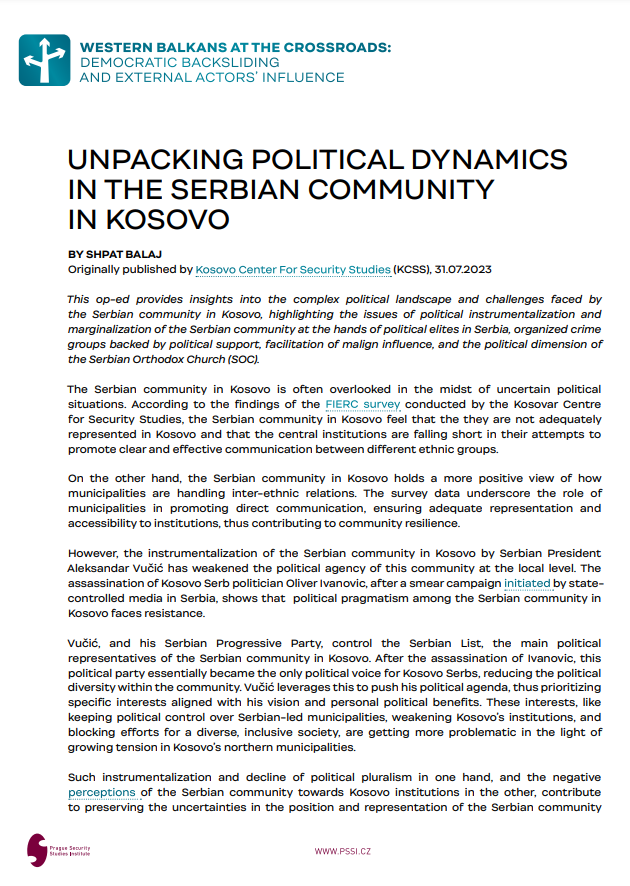
Information Resilience Program // Shpat Balaj / 1 Aug 2023
Unpacking Political Dynamics in the Serbian Community in Kosovo
This op-ed provides insights into the complex political landscape and challenges faced by the Serbian community in Kosovo, highlighting the issues of political instrumentalization and marginalization of the Serbian community at the hands of political elites in Serbia, organized crime groups backed by political support, facilitation of malign influence, and the political dimension of the Serbian Orthodox Church (SOC).
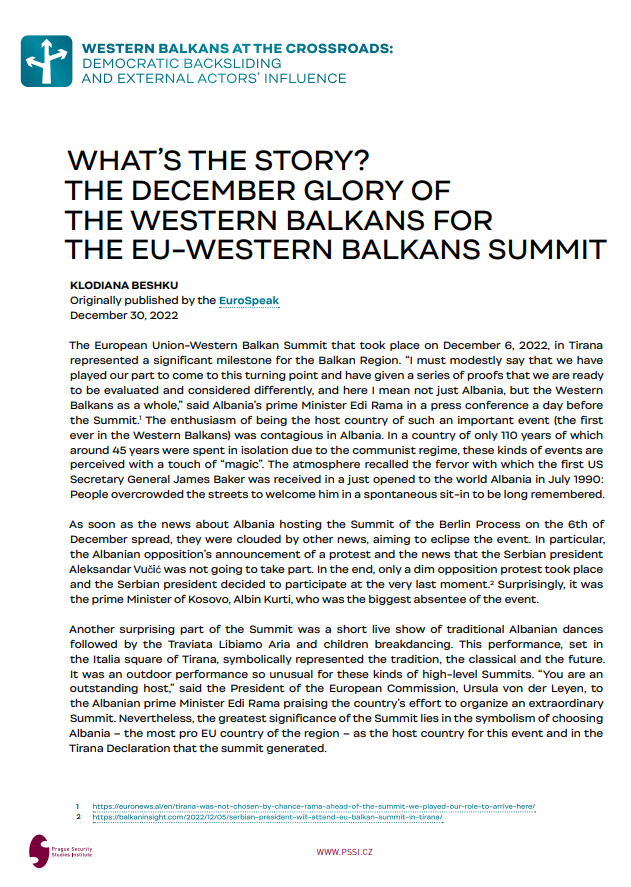
Information Resilience Program // Srećko Latal / 30 Jul 2023
Geopolitical Strife Fuels Dangerous Parallel Crises in Balkans
What effects the war in Ukraine has on Bosnia and Herzegovina and Kosovo and what does it mean for the internal functioning of the countries?
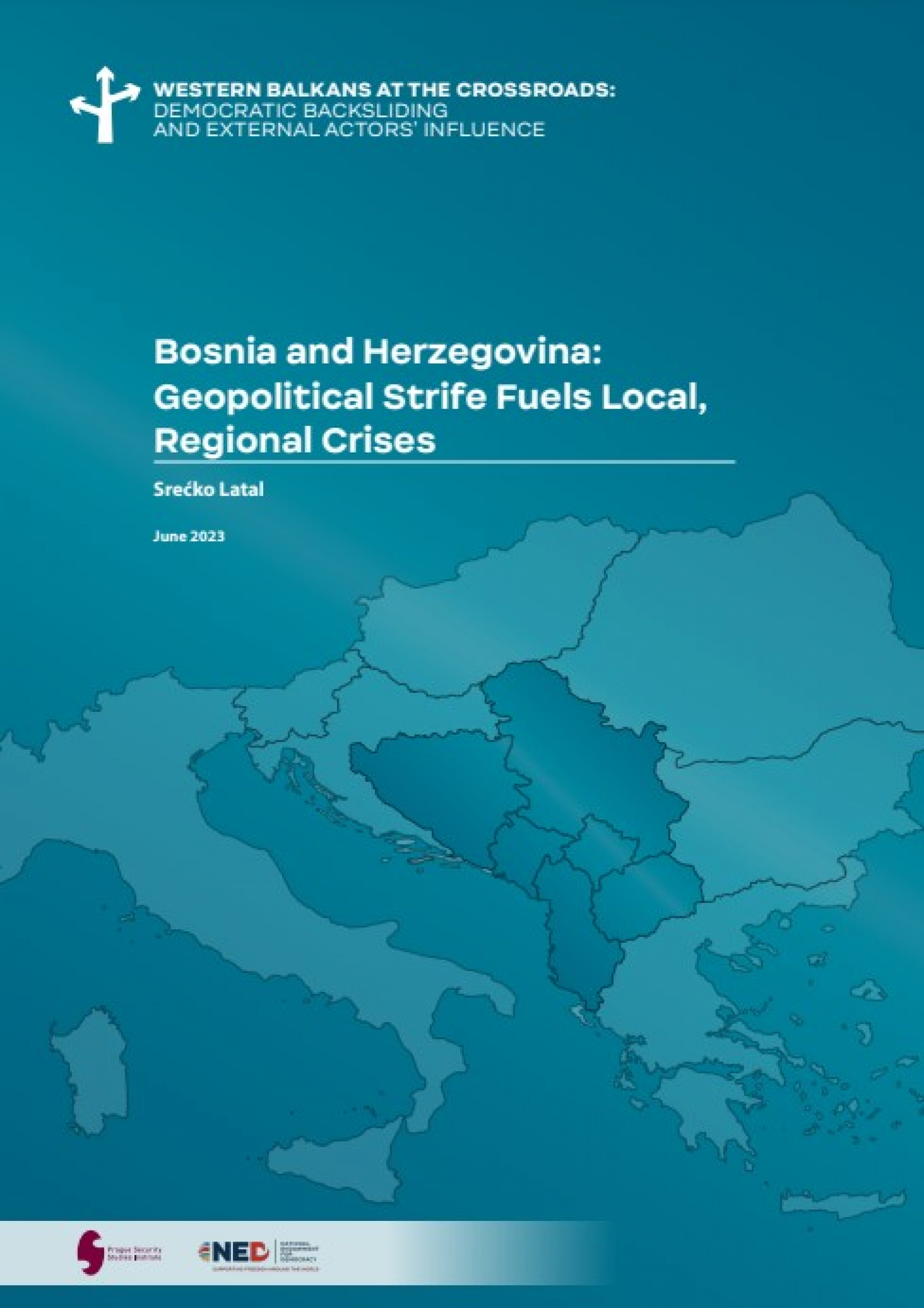
Information Resilience Program // Srećko Latal / 27 Jun 2023
Bosnia and Herzegovina: Geopolitical Strife Fuels Local, Regional Crises
Over the past decade, Bosnia and Herzegovina has been facing a major crisis stemming from growing internal political divisions. The steady weakening of the EU presence in the Balkans in recent years has made BiH even more vulnerable to the influences of the two main regional power centers – Belgrade and Zagreb – as well as other geopolitical actors, especially the USA, Russia, Türkiye, and China, as well as Iran and the Arab States of the Persian Gulf.
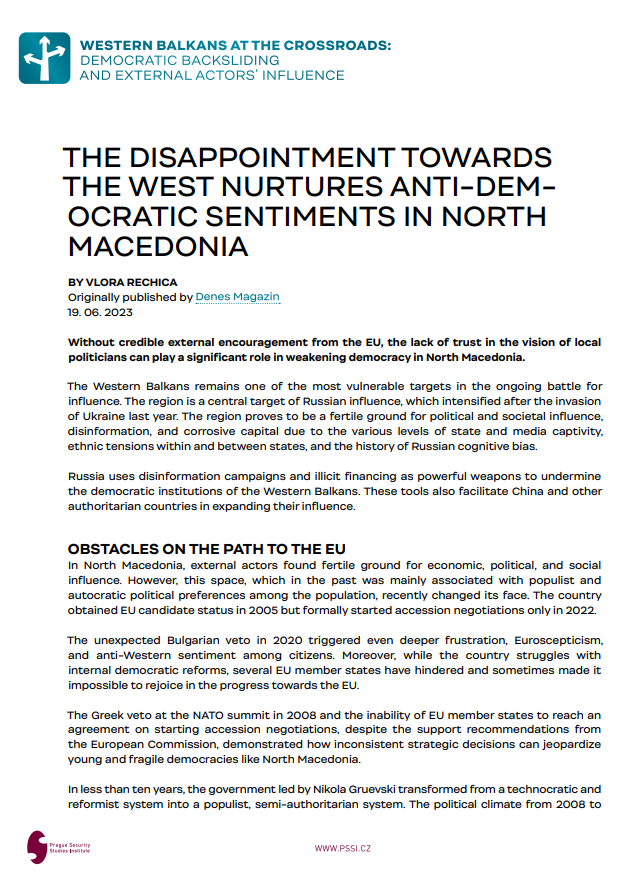
Information Resilience Program // Vlora Rechica / 23 Jun 2023
The disappointment towards the West nurtures anti-democratic sentiments in North Macedonia
Without credible external encouragement from the EU, the lack of trust in the vision of local politicians can play a significant role in weakening democracy in North Macedonia. The Western Balkans remains one of the most vulnerable targets in the ongoing battle for influence. The region is a central target of Russian influence, which intensified after the invasion of Ukraine last year. The region proves to be a fertile ground for political and societal influence, disinformation, and corrosive capital due to the various levels of state and media captivity, ethnic tensions within and between states, and the history of Russian cognitive bias.
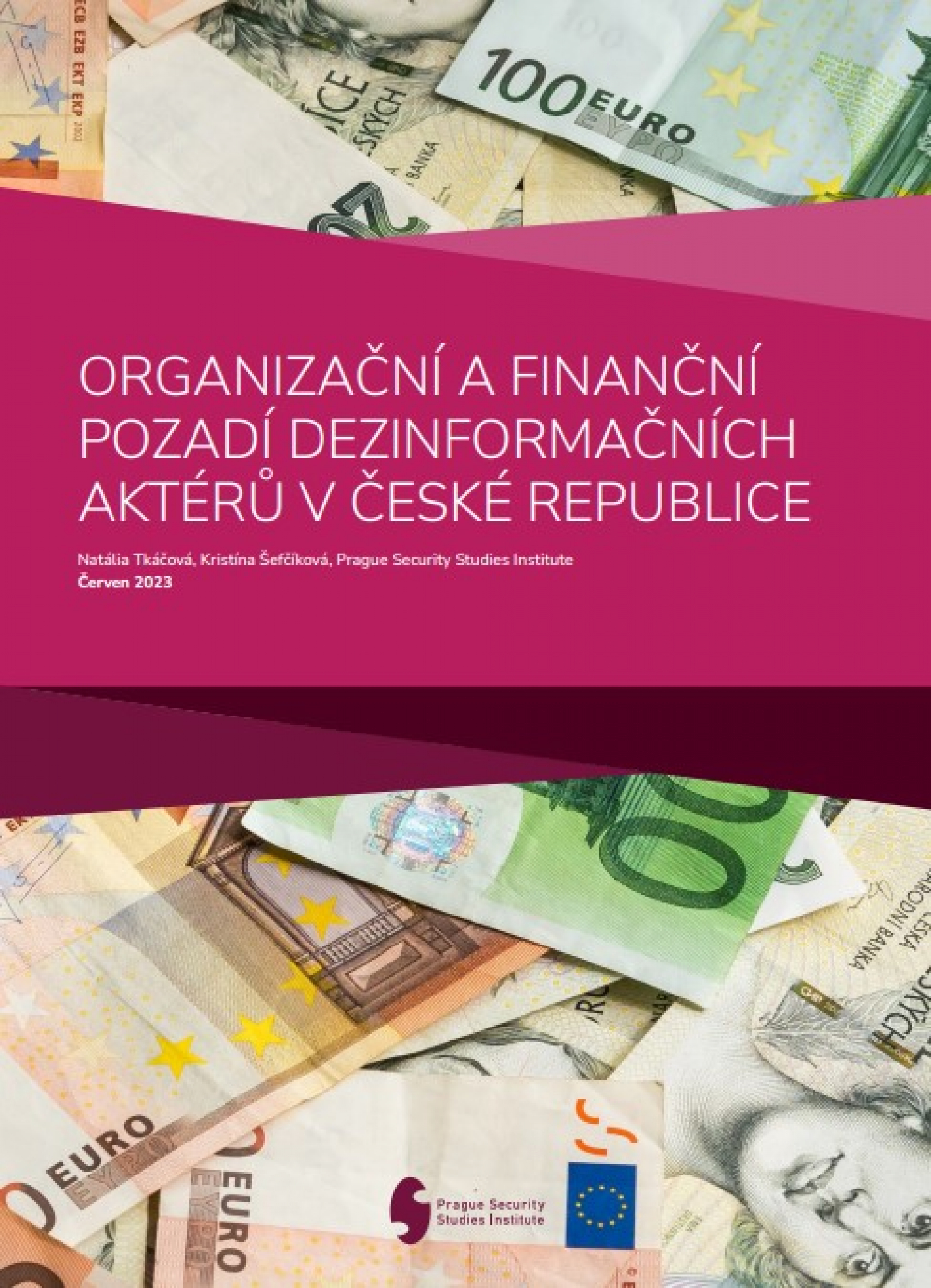
Information Resilience Program // Natália Tkáčová, Kristína Šefčíková, Prague Security Studies Institute / 20 Jun 2023
Organizational and Financial Background of Disinformation Actors in the Czech Republic
The Czech Republic’s disinformation scene consisted mainly of alternative online outlets spreading disinformation and conspiracies in the past, roughly until the Covid-19 pandemic. They were mostly non-transparent, by default hiding and obfuscating their ownership structure, contributors, and financing. However, this scene has diversified significantly in recent years due to the pandemic, the war in Ukraine and domestic political and economic developments. It now also consists of civil movements of "freedom fighters," influencers, celebrities, far-right/left politicians and individuals who began to engage in the disinformation discourse for their personal interest, for example to cover their debts or enter politics.
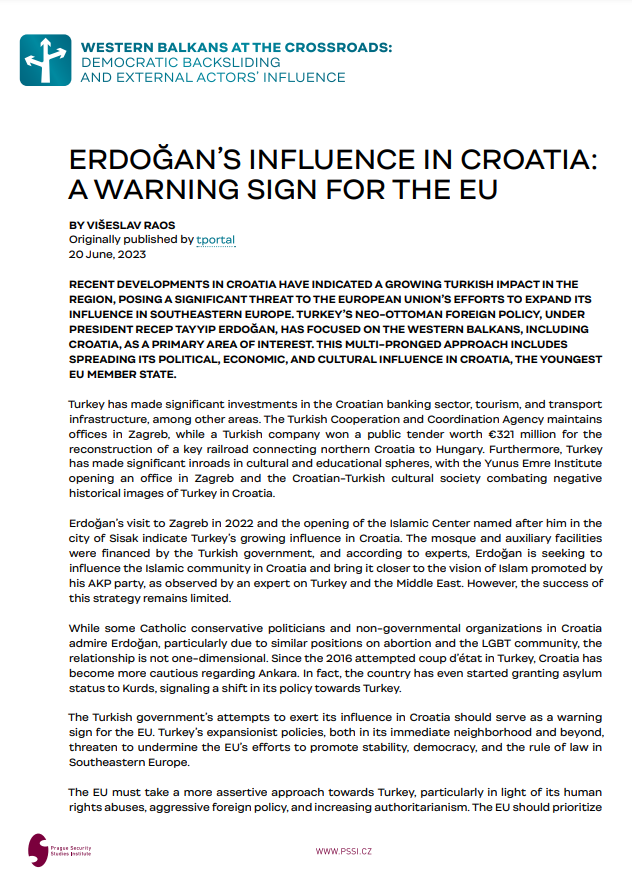
Information Resilience Program // Višeslav Raos / 20 Jun 2023
Erdoğan's influence in Croatia: A warning sign for the EU
Recent developments in Croatia have indicated a growing Turkish impact in the region, posing a significant threat to the European Union’s efforts to expand its influence in southeastern Europe. Turkey’s neo-ottoman foreign policy, under president recep Tayyip Erdoğan, has focused on the Western Balkans, including Croatia, as a primary area of interest. This multi-pronged approach includes spreading its political, economic, and cultural influence in Croatia, the youngest EU member state.
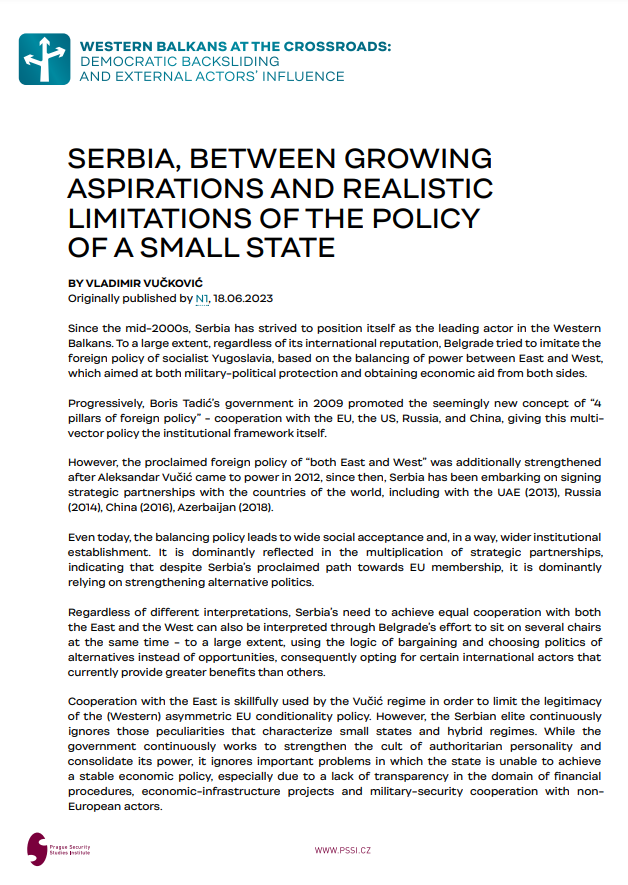
Information Resilience Program // Vladimir Vučković / 20 Jun 2023
Serbia, between growing aspirations and realistic limitations of the policy of a small state
Since the mid-2000s, Serbia has strived to position itself as the leading actor in the Western Balkans. To a large extent, regardless of its international reputation, Belgrade tried to imitate the foreign policy of socialist Yugoslavia, based on the balancing of power between East and West, which aimed at both military-political protection and obtaining economic aid from both sides.
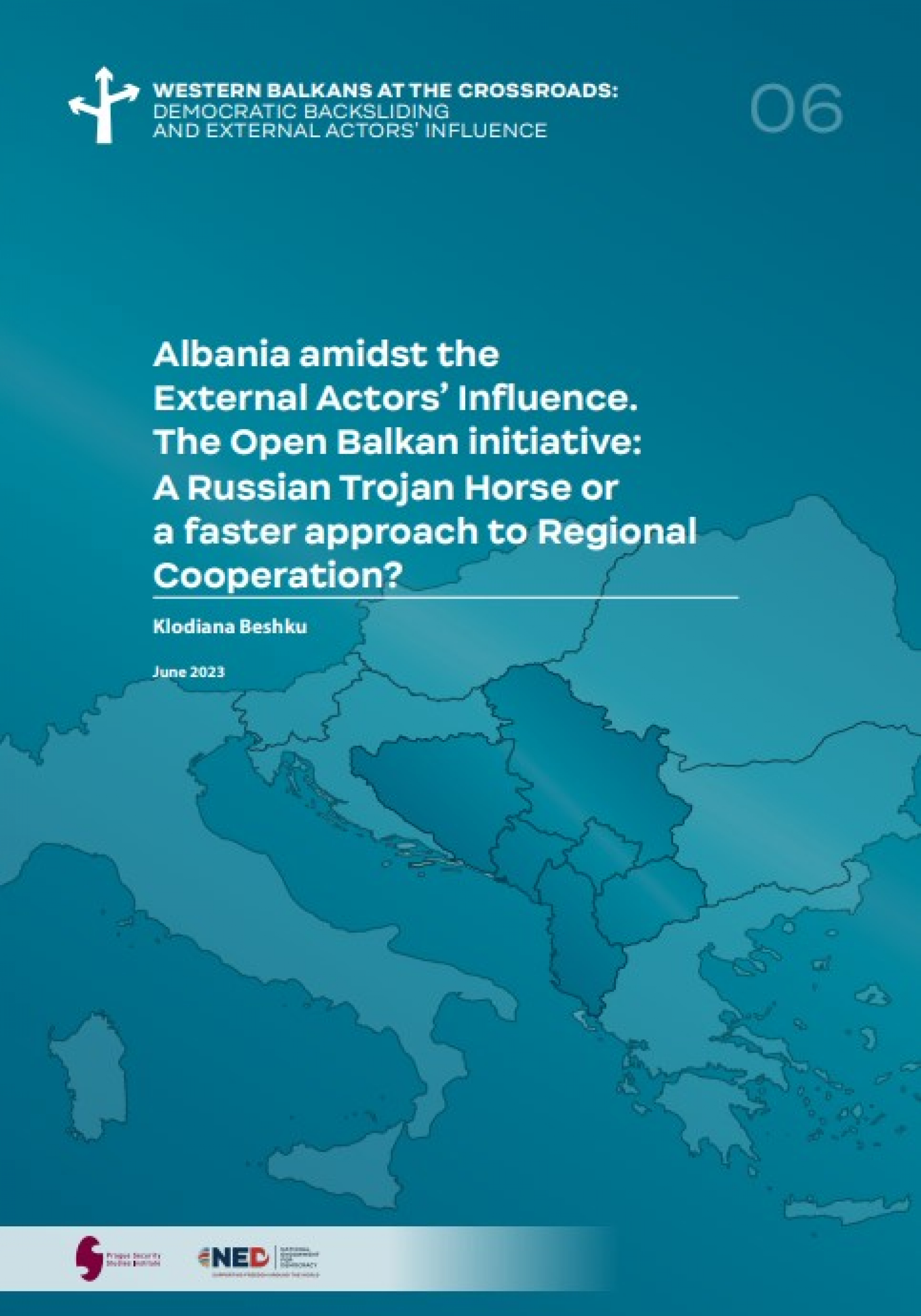
Information Resilience Program // Klodiana Beshku / 19 Jun 2023
Albania amidst the External Actors’ Influence. The Open Balkan initiative: A Russian Trojan Horse or a faster approach to Regional Cooperation?
Albania has found itself in the middle of the political “chessboard” created by the most influential external actors after the EU and the USA, namely, Russia, China, Türkiye, and the Arab states of the Persian Gulf. The study explores Albania’s multifaceted attitudes within the context of the dynamics in the Western Balkans and sheds light on how the Open Balkan (OB) initiative has shaped relations among the Western Balkan countries.